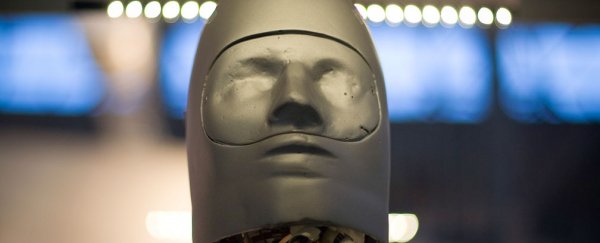Science-fiction author Isaac Asimov predicted back in the 1940s that future societies would need to devise strict laws to control the actions of robots, and now several decades later, one legal expert in the US is arguing that the time has come to contemplate such measures for real.
Ryan Calo from the University of Washington's School of Law says the legal system will have to grapple with the rise of robots in society, just as it took decades to adapt to the unique challenges posed by another recent transformative technology: the Internet.
In Robotics and the Lessons of Cyberlaw, published last month in the California Law Review, Calo argues that when it comes to disruptive and constantly shifting technologies like the Internet and robotics, the law takes a long time to catch up. The evolution of cyberlaw didn't happen overnight; lawyers, judges, and legislators had to confront all kinds of social, technological, and jurisdictional barriers they previously had not needed to address.
"Two decades of analysis have produced a rich set of insights as to how the law should apply to the Internet's peculiar characteristics," he writes. "But, in the meantime, technology has not stood still. The same public and private institutions that developed the Internet, from the armed forces to search engines, have initiated a significant shift toward robotics and artificial intelligence."
While Calo believes the legal community's recent experience with the challenges of cyberlaw will give it significant advantages in adapting to the demands of devising robotics laws, the challenge is still immense.
According to Calo, "Robotics combines, for the first time, the promiscuity of data with the capacity to do physical harm; robotic systems accomplish tasks in ways that cannot be anticipated in advance; and robots increasingly blur the line between person and instrument."
Despite his acknowledgment of the very clear physical harm that robots can pose to humans, Calo is not an alarmist or fantasist. He's not warning us about the perils of the impending robopocalypse; he's just saying, as optimistically as possible, that we haven't got the right kind of laws in place to deal with the problems that robots are beginning to pose.
"When it comes to the technology, I find I am conservative: robotics will continue to evolve, but mostly in ways that solve known technical challenges and reduce costs," he writes. "You will not find any references to HAL or C–3PO in the pages that follow. And yet the widespread distribution of robotics in society will, like the Internet, create deep social, cultural, economic, and of course legal tensions long before the advent of science fiction."
